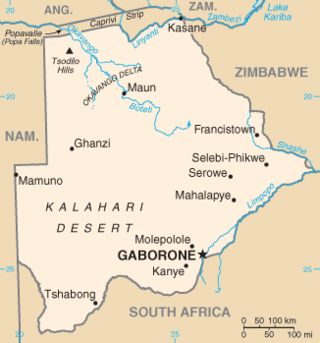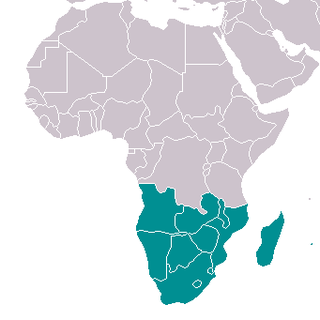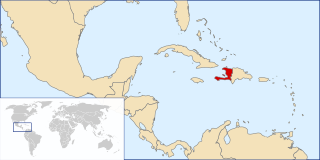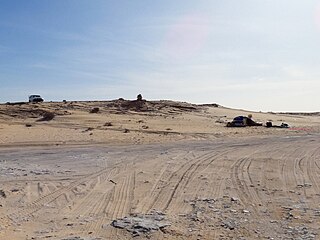UN Security Council Resolution 1834 was adopted unanimously by the 15 member states of the United Nations Security Council, extending the United Nations mission in Chad and the Central African Republic (MINURCAT) until March 15, 2009, which was due to expire on September 25, 2008.

United Nations Security Council Resolution 403, adopted on January 14, 1977, after hearing representations from the Minister of External Affairs of Botswana, condemned attacks by the "illegal minority regime" in Southern Rhodesia. The resolution recalled previous resolutions on the topic, including the right to self-determination of the people of Southern Rhodesia.

United Nations Security Council Resolution 404, adopted on February 8, 1977, after hearing from a representative of Benin, the Council reaffirmed that States must refrain from threats and use of force in their international relations and decided to establish a Special Mission composed of three members of the Council to investigate the events of January 16, 1977 against the country. The findings of the report by the Special Mission were examined in Resolution 405.

United Nations Security Council Resolution 405, adopted on April 14, 1977, after considering the report delivered by the Special Mission established in Resolution 404 for Benin, the Council strongly condemned the attack by mercenaries in the country on January 16, 1977. It recalled Resolution 239 (1965) condemning any State which hires mercenaries to attack another and interfering in its internal affairs. The Council also warned against any State's attempt to destabilise another.

United Nations Security Council Resolution 402, adopted on May 25, 1977, after recalling Resolution 402 (1976), the Council noted with concern the continued harassment of the people of Lesotho by South Africa in violation of the resolution. It also recognised the burden that had been placed upon Lesotho with regard to its decision not to recognise the "independent" bantustan Transkei by South Africa.

United Nations Security Council Resolution 424 was adopted unanimously on March 17, 1978; after hearing representations from Zambia, the Council expressed concern at unprovoked attacks against the country by the "illegal racist regime" in Southern Rhodesia, which resulted in deaths and destruction of property in Zambia. The Rhodesian Security Forces maintained that they had been attacking guerrilla bases in the country.

United Nations Security Council resolution 455, adopted on 23 November 1979, after taking note of representations from Zambia and recalling Resolution 424 (1978), the Council expressed concern and condemned the "illegal racist regime" in Southern Rhodesia for its "sustained pattern of violations aimed at destroying the economic infrastructure" of Zambia and causing a number of deaths.

United Nations Security Council resolution 568, adopted unanimously on 21 June 1985, after hearing representations from Botswana, the Council condemned the Raid on Gaborone by South Africa, expressing its shock and indignation at the loss of life and damage to property and considered the attack as a "gross violation of the country's sovereignty and territorial integrity".

United Nations Security Council resolution 572, adopted unanimously on 30 September 1985, after recalling Resolution 568 (1985) and noting a report from a mission to Botswana appointed by the Secretary-General, the Council endorsed the report regarding a South African attack on the country.

United Nations Security Council Resolution 1912, adopted unanimously on February 26, 2010, after reaffirming resolutions 1599 (2005), 1677 (2006), 1690 (2006), 1703 (2006), 1704 (2006), 1745 (2007), 1802 (2008) and 1867 (2009) in addition to noting a report by the Secretary-General Ban Ki-moon, the Council decided to extend the mandate of the United Nations Integrated Mission in Timor-Leste (UNMIT) in East Timor until February 26, 2011.

United Nations Security Council resolution 864, adopted unanimously on 15 September 1993, after reaffirming resolutions 696 (1991), 747 (1992), 785 (1992), 793 (1992), 804 (1993), 811 (1993), 823 (1993), 834 (1993) and 851 (1993), the Council noted the continuing situation in Angola and went on to condemn and place international sanctions on UNITA.
United Nations Security Council resolution 1028, adopted unanimously on 8 December 1995, after recalling previous resolutions on Rwanda, particularly Resolution 997 (1995), the Council considered a report by the Secretary-General and extended the mandate of the United Nations Assistance Mission for Rwanda (UNAMIR) for a period ending 12 December 1995. The extension was given so that the council had more time to consider the future of UNAMIR.

United Nations Security Council resolution 1183, adopted unanimously on 15 July 1998, after recalling previous resolutions on Croatia including resolutions 779 (1992), 981 (1995) and 1147 (1998), the Council authorised the United Nations Mission of Observers in Prevlaka (UNMOP) to continue monitoring the demilitarisation in the Prevlaka peninsula area of Croatia until 15 January 1999.

United Nations Security Council resolution 1212, adopted on 25 November 1998, after recalling all relevant resolutions on Haiti including Resolution 1141 (1997), the council extended the mandate of the United Nations Civilian Police Mission in Haiti (MIPONUH) for an additional year.

United Nations Security Council resolution 1250, adopted unanimously on 29 June 1999, after reaffirming all resolutions on the situation in Cyprus, particularly Resolution 1218 (1998), the Council addressed the Secretary-General Kofi Annan's mission of good offices in Cyprus.

United Nations Security Council resolution 1521, adopted unanimously on 22 December 2003, after recalling all previous resolutions on the situation in Liberia and West Africa, the council established a monitoring body to oversee international sanctions against Liberia. It was the final Security Council resolution adopted in 2003.

United Nations Security Council Resolution 1830 was unanimously adopted on 7 August 2008.

United Nations Security Council Resolution 2008 extended the mandate of the United Nations Mission in Liberia (UNMIL) for one year, until 30 September 2011. It was unanimously adopted on 16 September 2011.

United Nations Security Council Resolution 1871, which extended the mandate of the United Nations Mission for the Referendum in Western Sahara (MINURSO) by one year, was unanimously adopted on 30 April 2009.

United Nations Security Council Resolution 1883 was unanimously adopted on 7 August 2009.
















